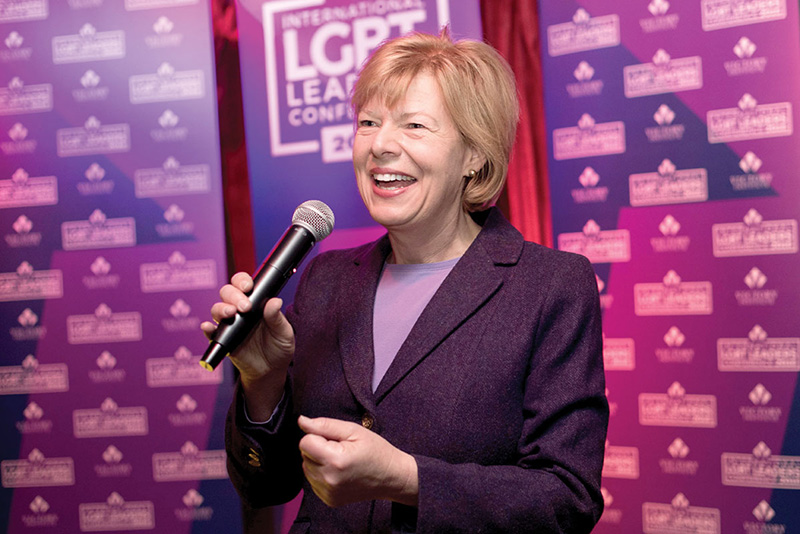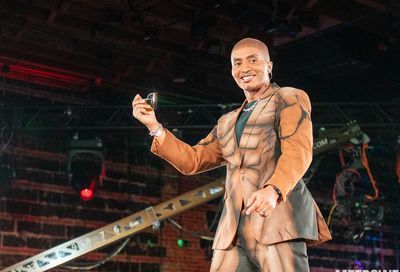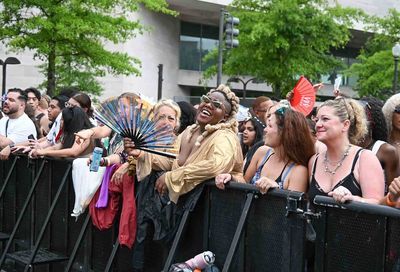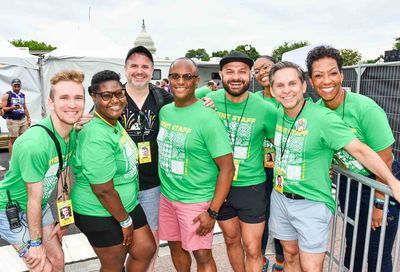LGBTQ People 9 Times More Likely To Be Victims of Violent Hate Crime
Analysis of hate crime statistics reveals LGBTQ victims of violent crime are more likely to suffer physical or emotional problems.

A recent analysis by The Williams Institute, an LGBTQ think tank at the University of California-Los Angeles School of Law, found that LGBTQ people were nine times more likely to become the victim of a violent hate crime than their cisgender and straight peers.
The analysis, which examined responses from the National Crime Victimization Survey from 2107 to 2019, found that there was an average of 6.6 violent hate crime victimizations per 1,000 LGBTQ people during that three-year period.
By comparison, there were 0.6 violent hate crime victimizations per 1,000 cisgender and straight people.
The National Crime Victimization Survey is a nationally representative survey that asks over 200,000 people about non-fatal crimes that occurred to them over the past year. Since 1999, it had asked victims if they suspected their victimization was motivated by certain biases, and if so, what reason that was. Since 2017, it has included data documenting the sexual orientation and gender identity of respondents.
For the purposes of The Williams Institute’s analysis, a “hate crime,” as defined by both the National Crime Victimization Survey and the Bureau of Justice Statistics, means victimizations that involve hate language, hate symbols, or were confirmed by police to have been a bias-motivated hate crime motivated by a victim’s perceived race, ethnicity, sexuality, gender, or religion.
When taking that definition into account, LGBTQ people experience 5.4 violent hate crimes that were specifically motivated by sexual orientation and gender identity per 1,000 people, compared to 0.2 victimizations per 1,000 people for non-LGBTQ people.
Other findings of the Williams Institute analysis include that about 9% of all violent attacks against LGBTQ people are classified as hate crimes, compared to 4% of attacks against non-LGBTQ people.
The authors of the analysis note that violent hate crimes involving LGBTQ victims have unique characteristics. For example, while past research suggested that LGBTQ victims of hate crime did not know their attacker, the Williams Institute finds that just under half, or 49%, of LGBTQ victims were attacked by a close friend, family member, partner, or former partner, compared to 11% of non-LGBTQ victims of violence.
LGBTQ victims of hate crimes are more likely than non-LGBTQ individuals to be below age 35, with 73% of hate crime victims falling below that age, compared to 38% of non-LGBTQ individuals. Statistics from 2017-2019 also showed that LGBTQ victims of hate crimes were more likely to report being attacked by an assailant who is white, with 88% reporting they were victimized by a white attacker, compared to only 54% of the non-LGBTQ population.
An overwhelming majority, or 61%, of LGBTQ violent hate crime victims are women, while the majority of offenders, or 74%, are male.
The analysis also found that LGBTQ survivors of violent hate crime were more likely to have negative physical, psychological, or emotional problems stemming from their attack than LGBTQ people who were victims in non-bias-motivated crimes. For example, LGBTQ victims of hate crimes were four times more likely to feel worried or anxious than LGBTQ victims of non-hate violence. And they were six times more likely to have high blood pressure, five time more likely to have headaches, and three times more likely to have trouble sleeping as a result of the victimization.
However, at the same time, fewer than four out of 10 LGBTQ victims sought professional help for their emotional or physical problems — underscoring the need for better support systems for those recovering from violent hate attacks.
“Hate crimes have adverse physical and psychological effects on LGBT victims that are greater than the effect of similar crimes not motivated by hate, study author Ilan Meyer, a Distinguished Senior Scholar of Public Policy at the Williams Institute, said in a statement. “These findings highlight the importance of developing and strengthening federal, state, and local interventions to protect LGBT people from victimization and providing support and services to mitigate the ill effects of hate crime victimization.”
“The rise of extreme anti-LGBTQ rhetoric and behaviors may embolden individuals to carry out hate crimes against LGBT people, so it will be important to track how our findings may change after 2019,” lead author Andrew Flores, an affiliated scholar with the Williams Institute, added. “It is vital that law enforcement and anti-violence programs are trained and prepared to effectively serve the unique needs of LGBT victims.”
Support Metro Weekly’s Journalism
These are challenging times for news organizations. And yet it’s crucial we stay active and provide vital resources and information to both our local readers and the world. So won’t you please take a moment and consider supporting Metro Weekly with a membership? For as little as $5 a month, you can help ensure Metro Weekly magazine and MetroWeekly.com remain free, viable resources as we provide the best, most diverse, culturally-resonant LGBTQ coverage in both the D.C. region and around the world. Memberships come with exclusive perks and discounts, your own personal digital delivery of each week’s magazine (and an archive), access to our Member's Lounge when it launches this fall, and exclusive members-only items like Metro Weekly Membership Mugs and Tote Bags! Check out all our membership levels here and please join us today!





























You must be logged in to post a comment.